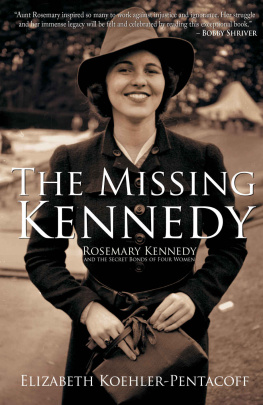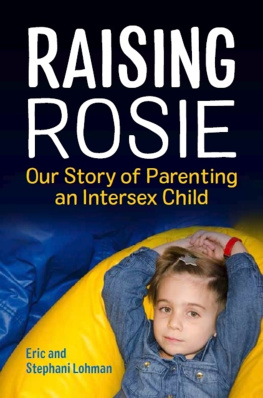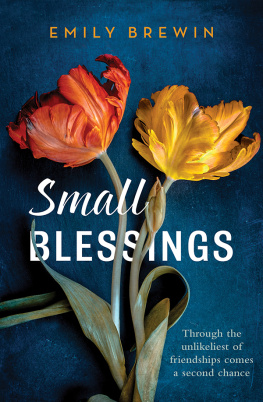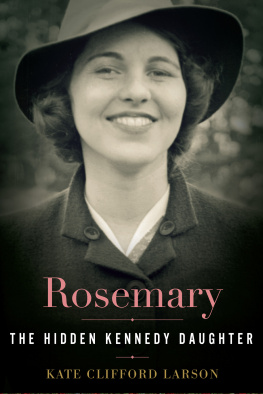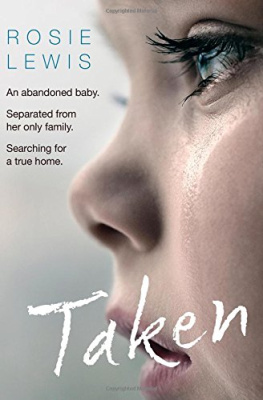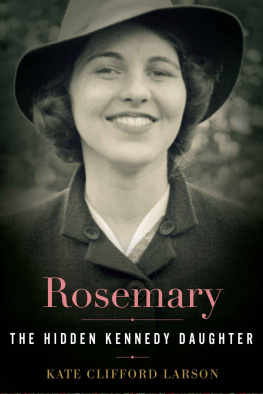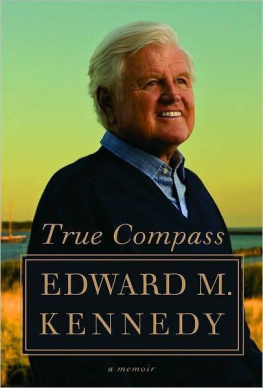Copyright 2015 Elizabeth Koehler-Pentacoff
No part of this book may be reproduced in any form or by electronic means, including information storage and retrieval systems, without written permission from the publisher, except by a reviewer, who may quote passages in a review.
Published by Bancroft Press
Books That Enlighten
P.O. Box 65360
Baltimore, MD 21209
410.358.0658 phone
410.764.1967 fax
www.bancroftpress.com
Author Photo Courtesy of Mahesh R. Junnarkar
Cover and Interior Design by J. L. Herchenroeder
Printed in the United States
For Sister Paulus and Rosie
Acknowledgments
Writing a book is a communal effort. Im particularly grateful to my writing friends, especially Beverly Lauderdale and Karen Terhune, who served as readers and offered essential feedback, support, and advice.
Without Ellen Leroes encouragement and specific help on writing a query letter, Id still be working on its first draft.
Susan Taylor Brown, Ginger Wadsworth, Abigail Samoun, Barbara Bentley, and Fran Wojnar also deserve my gratitude for their friendship and advice.
Every writer should be so fortunate in discovering researchers who know their material and share their expertise. Special recognition goes to Robert Murphy, President of the Beacon Historical Society, and Sandy Moneymaker of the Beacon Historical Society, for their information on Craig House; Supervisory Park Ranger Jim Roberts, Chief of Visitor Services, and Christine Wirth, Archivist Specialist, who answered my questions about the John Fitzgerald Kennedy National Historic Site; Kate McKenna, Editorial and Multimedia Director of Special Olympics; The librarians of The National Oceanographic Datas Central Library in Silver Spring, Maryland for their prompt responses about weather on particular days in historic Boston; Dr. Steven Holtz, neurologist on the faculty of University of California, Berkeley, for information about the human brain; Andrea Speth, Vice President of Marketing and Community Relations, Saint Coletta; Karen Gallagher and Mark Zastrow, Directors of Development, Saint Coletta, for history and facts about Saint Coletta; Jean L. Merry, Communications Director of the Sisters of Saint Francis of Assisi, and Sister Cecila Struck, Congregation Archivist for the Sisters of Saint Francis of Assisi, for information on my aunts vows; and most of all, the staff at the John F. Kennedy Presidential Library, especially Reference Archivist Steve Plotkin, Audio Visual Archivist Emily Watlington, and Intellectual Property Manager Lee Statham.
I am deeply appreciative of the helpful interviews and support from Anthony Shriver, Bobby Shriver, and Mark Shriver.
Thank you to my cousins whose memories enriched the book and reinforced my own recollections: Mary Koehler, Ellen Sauer, Bob and Pat Sterle, Joanne Riordan, Patricia Bacon, Arlene Condon, Mary Konop, Marge Wenzel, and my fathers cousins, Marion Igl and Ann Tabot.
I am lucky to have had the help of Arnold Koehlers written memories. My fathers brother, he served as the familys unofficial historian.
I am likewise fortunate to have had the written memories of my father and especially of Sister Paulus.
Little did I know that when my husband videotaped my interviews of Sister Paulus, my father, and his siblings about their youth, one day these conversations would be useful for a book. The original purpose of the interviews was a desire to know more about our family.
I must express gratitude to the Sisters of Saint Francis of Assisi who served at Saint Coletta: I have been honored to have grown up surrounded by their loving presence.
By their actions, my parents showed me what kindness really is. They were a perfectly suited pair to raise someone like me: opinionated and yet spiritual. I only wish I would have written this book sooner, so I could have talked with my parents again about incidents I was too young to remember.
Because I am anything but computer-savvy, Im fortunate in having a son who is. Im also lucky he comes up with instant, common sense solutions. Thank you, Tofer. I have a feeling the older I get, the more I will be relying on you for more than computer knowledge.
Thank you to my editor and designer at Bancroft Press, and to the publisher.
Finally, my utmost thanks and love to my husband, Bob, not just for his assistance in helping me conduct research at the JFK Presidential Library, and his continual support during the writing of this book, but for our lives together.
Introductory Note
Although intellectually disabled is the preferred term today for impaired cognitive function, mentally retarded was a common label used throughout the twentieth century. It is used, when applicable to the time period, within this book.
Rosemarys Childhood
At Rose and Joe Kennedys Beals Street home, the cloud-covered skies showed no signs of clearing as rain sprinkled down against the upstairs bedroom window. Rose lay in her bed feeling a concern she couldnt quite place. During neither of her pregnancies had she carried any sense of foreboding, and she had given birth to two bright, healthy, energetic sons, Joe Jr. and Jack.
Perhaps her apprehension was partly due to the uneasiness prevailing in the country. At President Wilsons request, the U.S. Congress had declared war against Germany the year before, and in both its morning and evening editions, the Boston Globe newspapers were reporting on the latest hostilities. Because of those stories, Rose was well aware that German spies could be lurking anywhere. They could even be spying on her husband Joe at Bethlehem Steel. Joe managed the companys shipping operation, which was heavily supplying the Allies with manufacturing materiel for their munitions.
Then there was a worry closer to home and far more insidiousthe strange and deadly flu then assaulting the nation. Who could not help but be under its dark spell? The Spanish influenza had begun only a few miles away, right in Boston. Within two weeks of its outbreak, more than two thousand people had been afflicted, with pregnant women and young people especially predisposed to the illness. Before the epidemic was over, it would kill 105 million people world-wide and take the lives of 650,000 in the United States, with 45,000 of those deaths recorded in Massachusetts alone.
Where is Dr. Good? the twenty-eight-year-old Rose wondered. He should be here by now. The baby is coming.
The nurse grabbed Roses knees and forced them together, telling her not to push and to wait for the doctor. Raised in the Victorian era and well-educated by strict Catholic nuns, Rose had learned to do what she was told. She would not disobey a physician, or even a nurse filling in for one. Rose followed the nurses instructions and did not push.
When Rose Marie (known as Rosemary, and nicknamed Rosie) Kennedy was born on September 13, 1918, her mother noticed almost right away that she was different. In the weeks following her first daughters birth, the infant rarely cried. Unlike her boisterous and lively older brothers, little Rosemary was mostly quiet. Had Dr. Goods delayed arrival deprived the newborn of oxygen at a critical time? There is no way to know authoritatively.
In Times to Remember , her memoir, Rose Fitzgerald Kennedy wrote of Rosemary, She was slow in everything, and some things she seemed unable to learn how to do, or do well or with consistency. When she was old enough for childish sports, I noticed, for instance, that she couldnt steer her sled. When she was old enough to learn a little reading and writing, the letters and words were extremely difficult for her, and instead of writing from left to right on a page, she wrote in the opposite direction.
In a letter to Santa requesting several Christmas presents, which Rosemary probably wrote when she was between eight and ten years old, its clear she didnt understand punctuation or sentence structure, had memorized various spelling words that didnt make sense within the context of her request, and had misspelled about one out of every five words.
Next page
